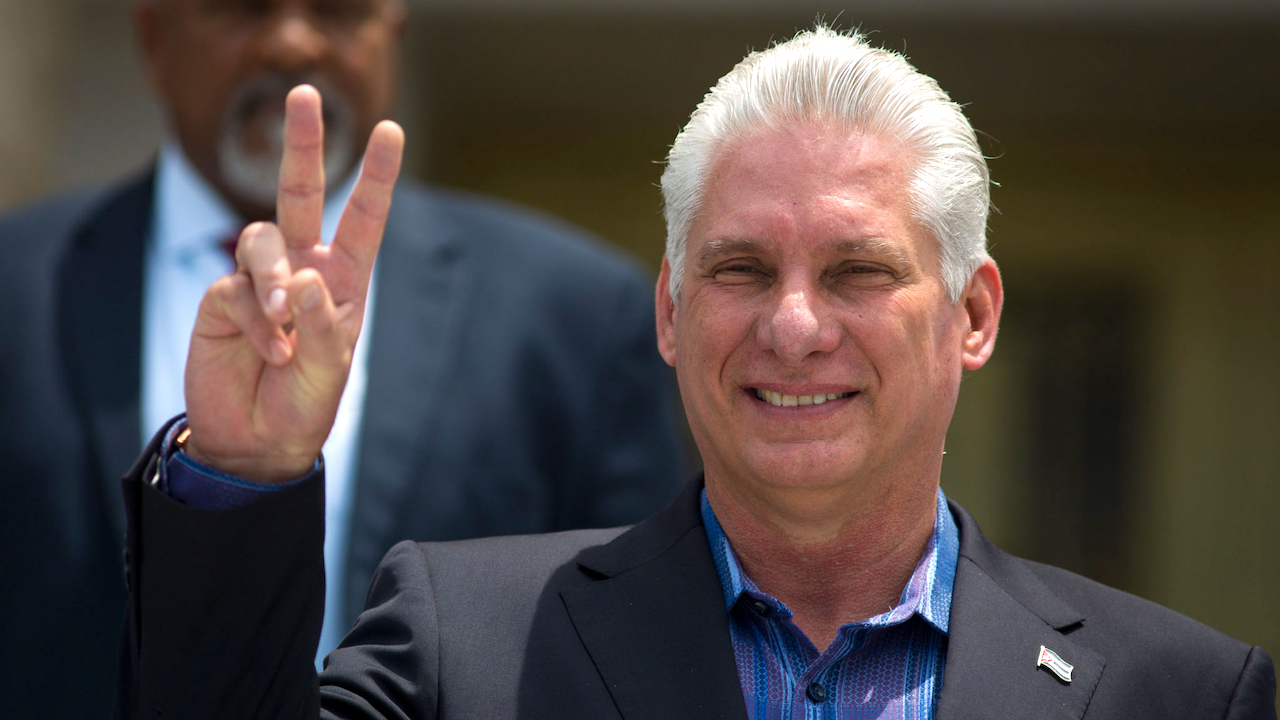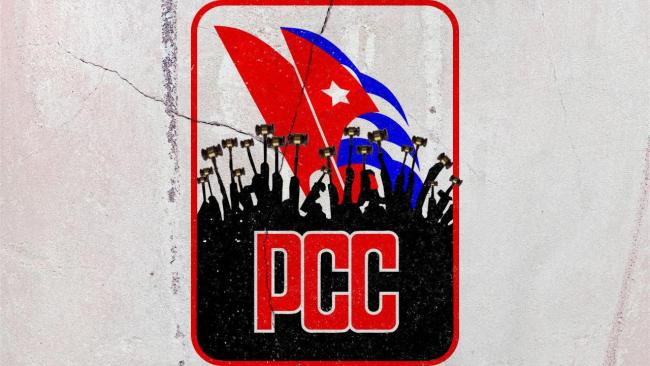A few days ago I saw a photo of a group of people in front of the High Court in London. They had turned out to support the lawsuit against the Castro regime for its debt of 72 million euros. They carried a large sign that read: "Cuba is a failed state."
True! This is one of the most powerful and patriotic flags that Cubans can fly today because, without a doubt, Cuba today is a failed state.
It does not matter that academics and political scientists have not yet agreed on a definitive and universal concept of a failed state, or that the only consensus, thus far, is that signs include ungovernability, chaos, civil war, or territories in which there is no government presence. Some even use equivalent terms, such as "states in crisis," "vulnerable states," "decomposing states," or "collapsed states."
Such a perception is incomplete, to say the least. "Failure" means that something that does not work well, or does not work at all. Dictionaries indicate "frustrated," "that which does not reach its objectives or fails in them," "that which does not work as it should." And it is synonymous with unsuccessful, futile, failed, ineffective and inefficacious.
Fidel Castro himself, the founder of the new state, even confessed his failure
Can a dictatorial state model work well when its own founder publicly admitted that it was ineffective and did not work? This was Fidel Castro's "slip" in an interview in 2010: "The Cuban model no longer works, not even for us."
And an old legal axiom states that "when there is a confession, no further evidence is necessary." The international community, in general, and the Left, in particular, ignored Fidel Castro's confession anyway. Even today they speak with admiration of the "Cuban Revolution," and even support it, politically and economically, many still hypnotized by the myth of a little Caribbean David standing up to an American ogre that "blocks" it and prevents its development, etc.
Enough of irrational "spells" and fetishes, especially after the dramatic worsening of the endemic crisis on the island. The normal world (with democracy and a market economy) labelled the Communist regimes in Europe after the fall of the Berlin Wall "failed states" because they were aberrant, inoperative and criminal regimes. They caused the death of more than 100 million people, and thwarted the great industrial and economic development that their capitalist neighbors achieved after World War II.
According to a widely-held view among experts, Communist countries did not classify as failed states because their governments exercised authority over the entire territories of the nations in question, and had forces sufficient to establish order and enforce the law.
One wonders what difference there is between a state that cannot control its country well, where citizens are subjugated by armed, criminal groups; and another that monopolizes everything like the Big Brother from the novel 1984, and it is the state itself that abuses, impoverishes, kills, and starves its population. Is that the function of the modern nation-state?
The definition of the nation-state emerged in Europe in the mid-seventeenth century, in the wake of the Thirty Years' War (1648) between the great European powers, and matured with the French Revolution and the independence of the United States, which put an end to the old feudal order, with its kings, princes and landowners who exercised power through brute force, without laws protecting the people.
Cuba is a state in a process of decomposition.
Cuba today is a decomposing nation-state in which a group of criminal mobsters, embezzlers of public goods and usurpers of power, remain in control through terror and the threat of prison, with a public administration headed by an effete elite that only exacerbates the critical situation with each passing day.
The model of the "superior society" designed by Karl Marx and then put into practice to fulfill the prophecy that "The Earth will be a paradise," as proclaimed in "The International," was one of the greatest tragedies in human history. And a colossal failure as a social model.
But some insist that a state is "failed" when it does not fully control its territory. Since 2005, the Fund for Peace has compiled an annual list of failed states, citing: Yemen, Syria, Afghanistan, Sudan, Ethiopia, Burma, Niger, and 15 or 16 other countries ravaged by civil wars and dominated by criminal factions vying for power. But never Cuba, because the country is very well controlled. Despite this incomplete definition, there are aspects that describe the Castro regime.
The term "failed state" was first used in 1992 in Foreign Policy magazine by two American academics, Gerald Herman and Steve Ratner, in an article entitled "Saving Failed States."
In that article, republished on 15 June, 2010, both authors concluded that failed states are "those governments that have lost the capacity to control and provide the necessary public goods for their population" and in which "massive human rights abuses are committed."
The Fund for Peace and academics Rory Steward, Olivier Nay and Sebastian Zapata agree that it is an ambiguous, imprecise term, lacking legal validity. William Zartman says that a state "has collapsed when it has ceased to carry out its basic functions."
Spain's Ana López Martín argues that the concept of a failed states serves "to catalog what are not necessarily similar realities." According to Robert Rotberg, states fail when "they have lost legitimacy and the very nature of the nation-state becomes illegitimate in the eyes of its citizens."
The online encyclopedia Wikipedia states that the term "failed state" is used "to describe a sovereign state that is considered to have failed to guarantee access to basic services for its population."
Out of 18 conditions to be considered a failed state, Castroism features 14
Based on the opinions of experts, I drew up a list of 18 aspects that can define a failed state, and 14 of them are applicable to Cuba:
1) An inability to provide basic services; 2) economic crises, inflation and unemployment; 3) political corruption and judicial inefficiency; 4) high levels of under-the-table economic transactions and extreme poverty; 5) brain drain, with highly qualified citizens emigrating; 6) a large portion of the population living in "irregular settlements"; 7) vulnerability to natural disasters; 8) a lack of access to food and drinking water, and the prevalence of diseases and epidemics; 9) an inability to interact with other States as a full member of the international community; 10) high levels of crime, organized crime, and public insecurity; 11) low percentages of people with a higher education; in Cuba, a large majority of professionals have emigrated, are in the process of doing so, or have the goal of leaving the country 12) the need for external economic support, such as loans or humanitarian aid; 13) an inability to provide essential services such as health and sanitation; 14) not being able to ensure the minimum conditions to ensure the public's wellbeing and the carrying out of normal economic activity.
The aspects that do not describe Cuba are: 1) overpopulation and pollution; 2) high levels of terrorism and drug trafficking; 3) a large part of the population with incomplete primary or secondary education; and 4) a loss of physical control over the territory or a monopoly on the legitimate use of force.
That is, based on the current discourse, the Castroist state can be classified as a failed one. The problem is easy to find. Before 1959 the Cuban economy was at the forefront of Latin America, with per capita income higher than that of several European countries. Under Communism, it became parasitic, and cannot even survive without foreign subsidies. Is this not a failed state?
Just as global organizations classify, through the assignment of points, which countries have more or less freedoms and democracy, it is time that they classify in the same way the degree to which states fulfill the functions incumbent upon them as such. For example, if Afghanistan had a score of 95 out of 100 (bad) points, perhaps Cuba could score an 80. But both states would be regarded as failed, though to varying degrees.
In Cuba, the Castroist, predatory, military mafia is, in fact, a criminal band that imposes itself through its military might. It is not accountable to the Government, and appropriates the little wealth created by citizens, and the money sent by the Cuban community of exiles to their families so that they do not go hungry or die due to a lack of medical care or medicines.
In short, this is a key issue, but receives little attention around the world. This is why Cubans must insist, again and again, on what that demonstrator wrote on his sign before the high court in London: "Cuba is a failed state."




